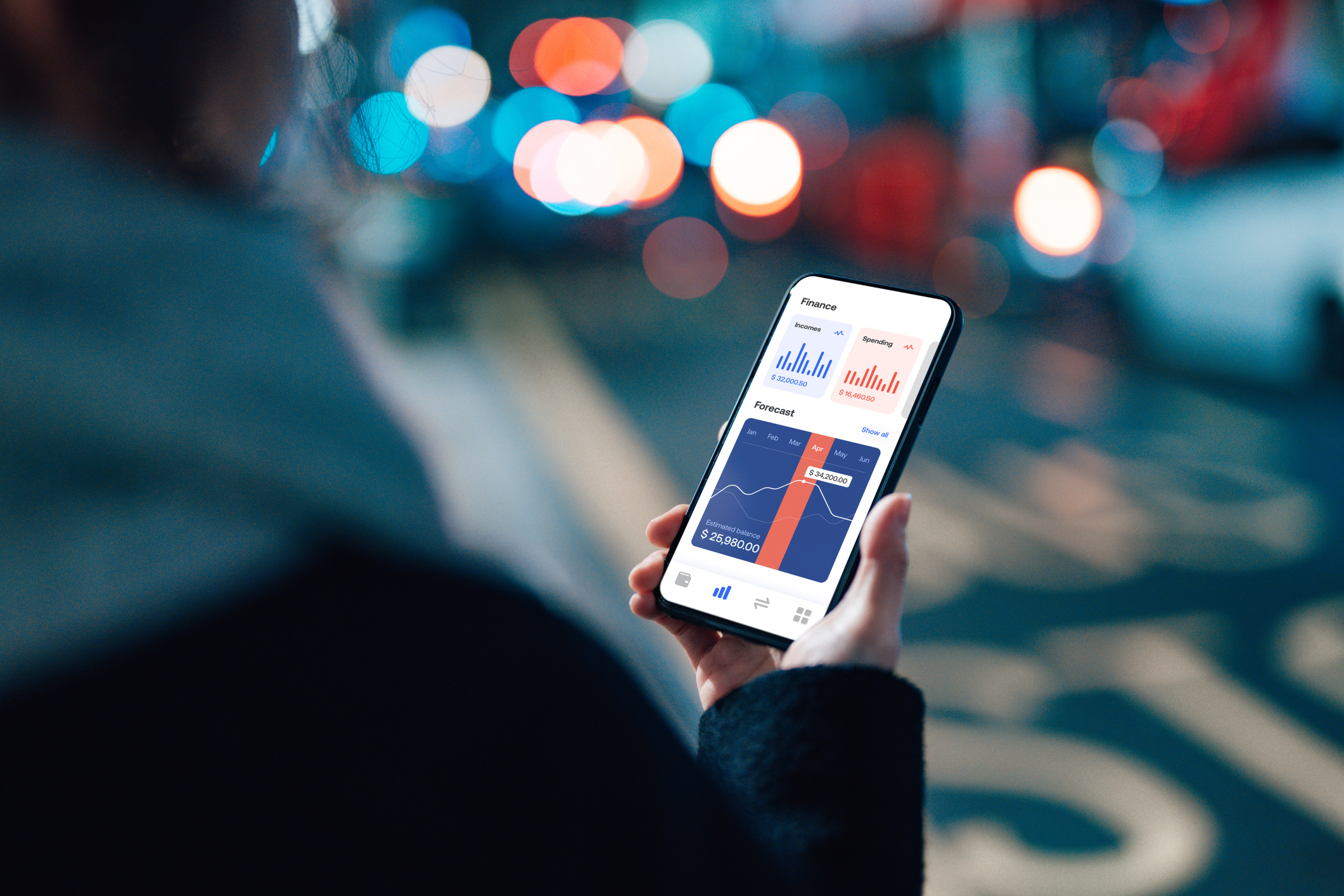HSBC launches multi-currency app - is it any good?
HSBC has launched a multi-currency app and debit card in the UK. Is it any good and how does it compare to its rivals?


Get the latest financial news, insights and expert analysis from our award-winning MoneyWeek team, to help you understand what really matters when it comes to your finances.
You are now subscribed
Your newsletter sign-up was successful
Want to add more newsletters?

Twice daily
MoneyWeek
Get the latest financial news, insights and expert analysis from our award-winning MoneyWeek team, to help you understand what really matters when it comes to your finances.

Four times a week
Look After My Bills
Sign up to our free money-saving newsletter, filled with the latest news and expert advice to help you find the best tips and deals for managing your bills. Start saving today!
Banking giant HSBC has entered the world of forex with the UK launch of an international payments app and debit card.
It offers customers cheap foreign exchange and goes up against already established rivals in the market such as Wise and Revolut.
Customers can hold 10 different currencies in the new app, called Zing, and make international transfers to more than 30 different countries worldwide. They can also use the app and debit card to spend abroad with low fees.
MoneyWeek
Subscribe to MoneyWeek today and get your first six magazine issues absolutely FREE

Sign up to Money Morning
Don't miss the latest investment and personal finances news, market analysis, plus money-saving tips with our free twice-daily newsletter
Don't miss the latest investment and personal finances news, market analysis, plus money-saving tips with our free twice-daily newsletter
The announcement comes after research commissioned by Zing last month showed that more people are looking for ease when spending abroad. James Allan, founder and chief executive of Zing, said: “Many people are increasingly living an international lifestyle with more than half (57%) of UK adults either spending time living abroad or having aspirations to do so.
“Our research found that these people often have frustrations when sending, spending and converting money.”
Zing launched in the UK on 3 January 2023 and can be used in more than 200 countries. It is available to download for free on Android and iOS.
Find out how the app works, if you’re eligible to hold an account and how it compares to other low-cost money transfer apps and cards.
How does the Zing app work?
To incentivise new customers, the first 10,000 people to join Zing will receive exclusive rewards, plus a special limited edition “founding member” card.
In the first year, Zing founding members will get a choice of fee-free currency conversions on transactions worth up to £1,000, or they can opt for 20 fee-free global ATM withdrawals.
Those who are not founding members will get one fee-free international withdrawal per month. They will then be charged £2 or the equivalent for every withdrawal made, in the currency they are taking cash out in.
For non-founding members, Zing charges a variable conversion fee of at least 0.6%.
Here’s what it is charging at the time of writing, based on transferring £200.
| Currency conversion | Conversion fee (%) | Value transferred (including conversion fee) |
|---|---|---|
| GBP to EUR | 0.6% | 230.73 euros |
| GBP to USD | 0.6% | 252.83 dollars |
| GBP to AED | 0.75% | 927.07 Dirham |
Whilst there have been reports that there is a waiting list to sign up for the new app, Zing has confirmed that there is no waiting list and is available for download.
Are you eligible for the Zing app?
Although Zing is part of the global HSBC Group, it is a separate entity. So, you do not need to be an HSBC customer to sign up for Zing; the app and debit card are available to all UK residents aged 18 years or over.
How do you make a transfer on the Zing app?
To make a transfer, you will need to be logged into the Zing app.
You should see a ‘pay’ tab on the home screen, or you can click the ‘send money’ button on the home screen which will take you to the pay page.
Then, go on ‘make a payment’ and click if you want to pay an existing payee or someone new.
After this, you can fill in the fields of your transfer amount.
Is your money protected in the app?
Zing is not a bank, but it is regulated by the Financial Conduct Authority (FCA).
However, your funds will not be protected by the Financial Services Compensation Scheme (FSCS) as your money is regarded as “e-money”.
MoneyWeek asked Zing how it would protect customer funds. It replied: “Zing is an Electronic Money Institution and we protect people’s money through a process called safeguarding, and are regulated by the Financial Conduct Authority (FCA).”
Is Zing any good?
With already established fintechs in the market such as Revolut and Wise that undercut high-street banks when it comes to global transfer fees, will the new app Zing will be able to compete as a newcomer?
Here’s how the Zing app compares to its competitors.
| Header Cell - Column 0 | Monthly fee to hold the account | Usage | Conversion fee | Transfer fee | Withdrawals aborad |
|---|---|---|---|---|---|
| Zing (Founding Members) | No fee | App and debit card | From 0.6% | Free | First 20 withdrawals free. £2 or equivalent fee thereafter per withdrawal. |
| Zing (non-Founding Members) | No fee | App and debit card | From 0.6% | Free | One free withdrawal a month. £2 per withdrawal or equivalent from second withdrawal. |
| Revolut (standard account) | No fee | App and pre-paid debit card | Fee-free on up to £1,000 per month from Monday to Friday. | Free | Fee-free on up to £200 per month or on up to five withdrawals per month. |
| Wise | No fee | App and debit card | From 0.43% | Free to transfer the same currency to another Wise account. Wise charges from 0.43% when you send to a different currency. | Fee-free on up to £200 per month. 50p per withdrawal charged on withdrawals above £200. |
For the purpose of a like-on-like comparison, we have used Revolut’s standard account, but it does offer other accounts where it charges a monthly fee of up to £7.99 per month for its premium account or £45 per month for its Ultra account.
Russ Mould, investment director of the online platform AJ Bell, puts the early success of the new app down to a few things, including cost, trust and the quality of service.
“Very low cost of use (assuming there is one at all) and functionality and quality of service are very important, while the more mass (and customers) they gain, and the better known (and trusted) the brands become, the greater the chance they have of gaining further momentum.”
Revolut and Wise are known to offer better exchange rates than high-street banks - but we don’t know if Zing will take the approach of competing with the fintechs or price itself similarly to high-street banks, like HSBC.
However, Mould notes: “Zing should benefit from HSBC’s financial muscle, especially at a time when fintechs are being obliged to focus as much on profitability and cash flow as they are on a land grab and customer acquisition.”
If you’re looking for a more conventional - but low-cost - travel debit or credit card, check out our round-up of best travel cards to use when travelling abroad.
Get the latest financial news, insights and expert analysis from our award-winning MoneyWeek team, to help you understand what really matters when it comes to your finances.
Vaishali has a background in personal finance and a passion for helping people manage their finances. As a former staff writer for MoneyWeek, Vaishali covered the latest news, trends and insights on property, savings and ISAs.
She also has bylines for the U.S. personal finance site Kiplinger.com and Ideal Home, GoodTo, inews, The Week and the Leicester Mercury.
-
 Should you buy an active ETF?
Should you buy an active ETF?ETFs are often mischaracterised as passive products, but they can be a convenient way to add active management to your portfolio
-
 Power up your pension before 5 April – easy ways to save before the tax year end
Power up your pension before 5 April – easy ways to save before the tax year endWith the end of the tax year looming, pension savers currently have a window to review and maximise what’s going into their retirement funds – we look at how
